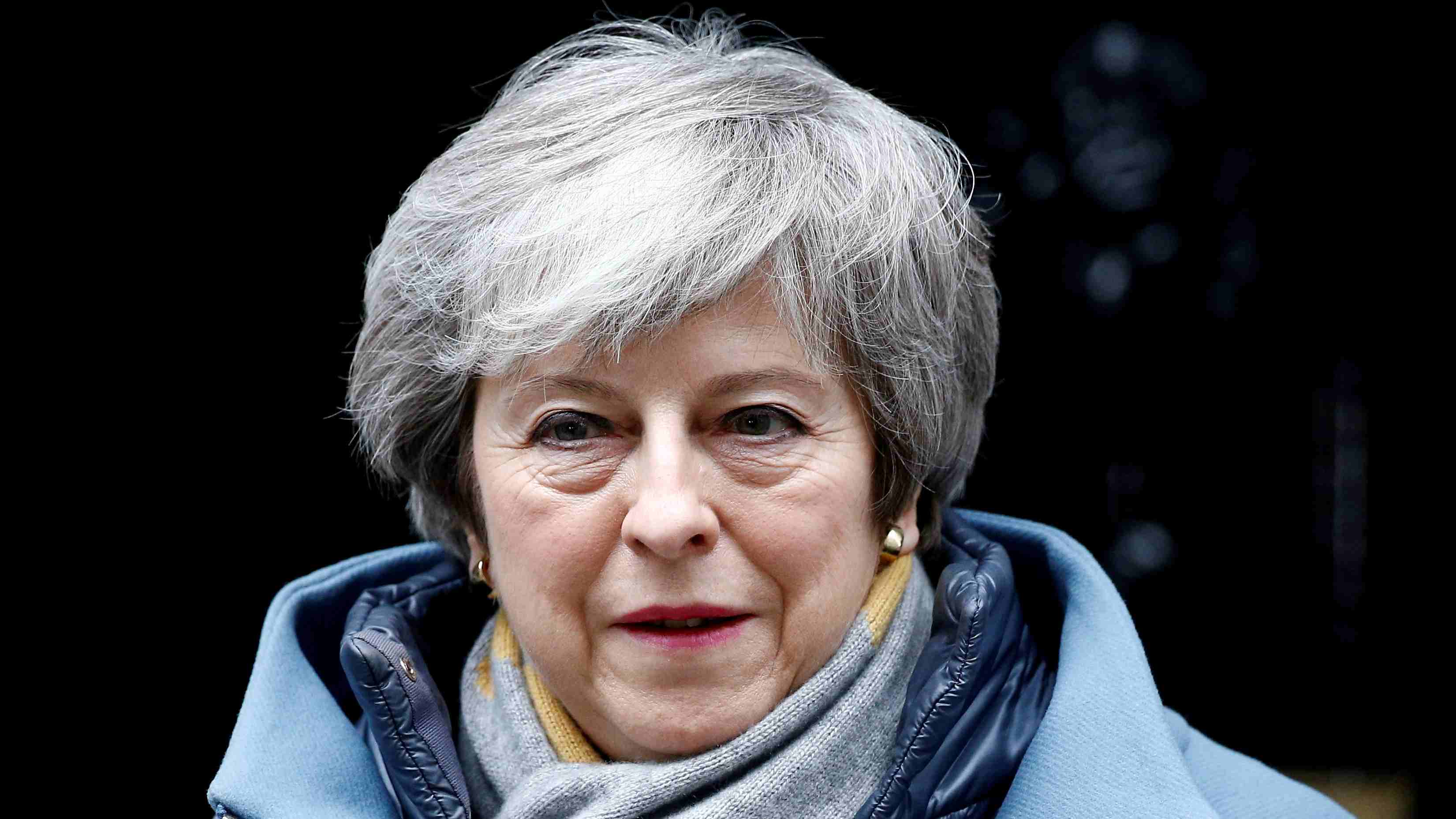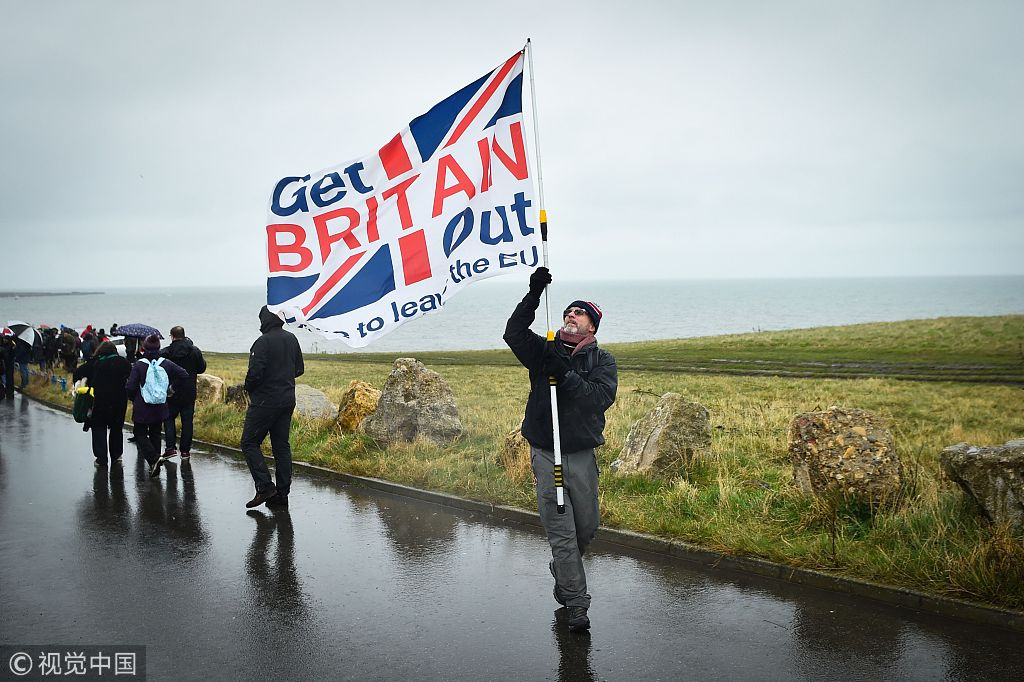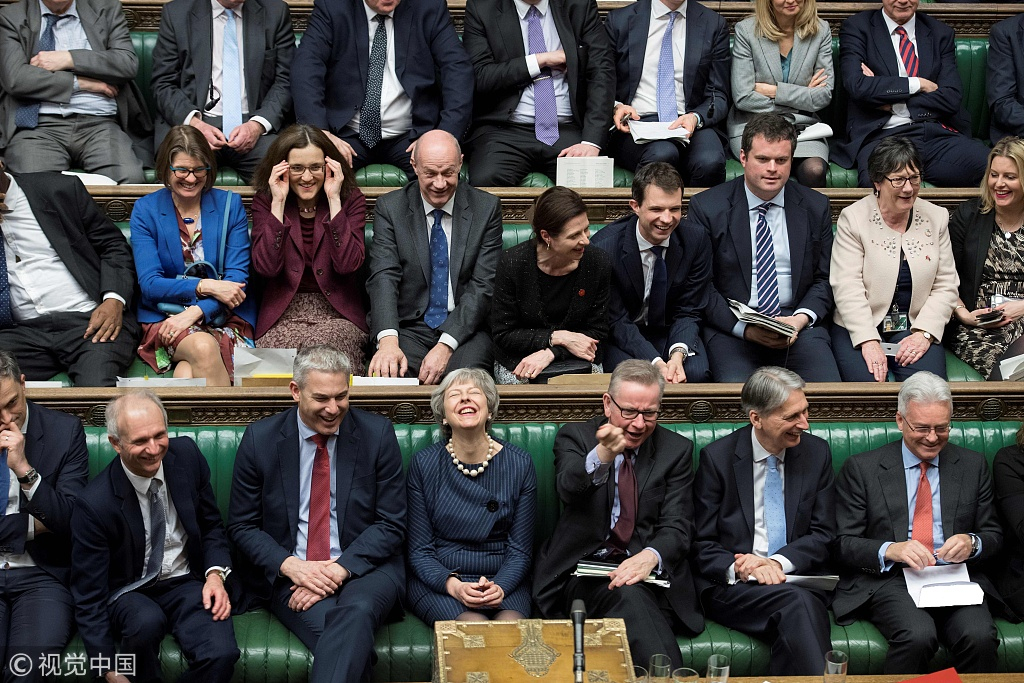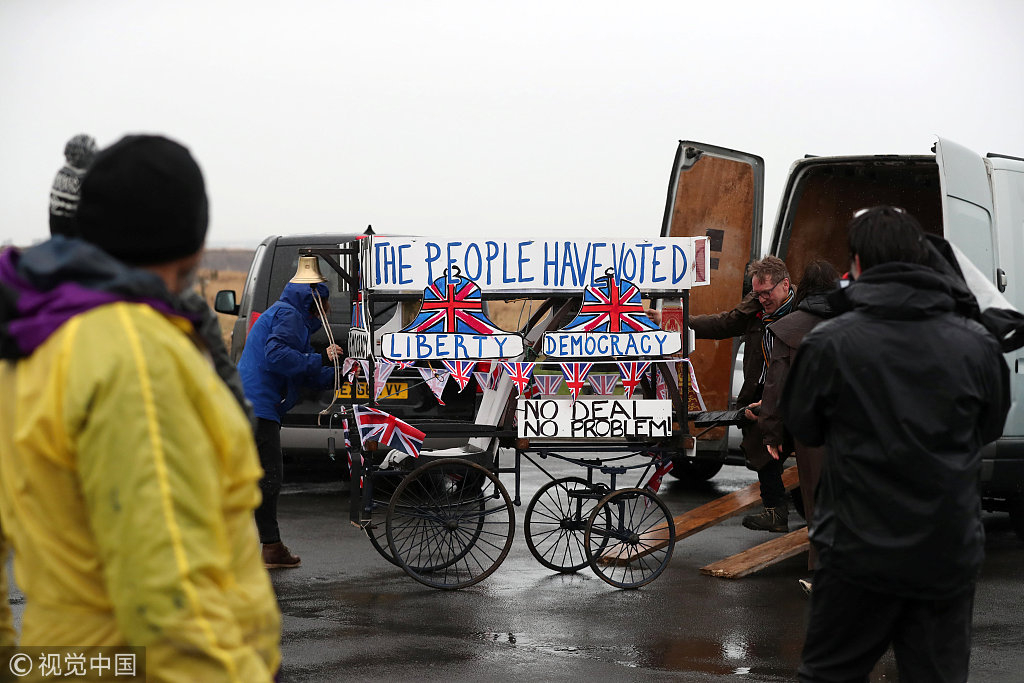
Europe
09:01, 17-Mar-2019
British lawmaker McVey will back PM May's Brexit deal
Updated
17:47, 17-Mar-2019
CGTN

Esther McVey, a former British minister who resigned from the government over Theresa May's Brexit deal, said Sunday that she would back the prime minister's plan to leave the European Union in a vote this week.
May is expected to put her divorce deal with the EU before Parliament for its approval in a vote on Tuesday or Wednesday, after lawmakers rejected it twice before.
Read more:
“The choice before us is this deal or no Brexit whatsoever and to not have Brexit would go against the democratic vote of the people,” McVey told Sky News.
She resigned from May's team of senior ministers in November last year to be able to vote against May's deal.
May: back my deal or face long Brexit delay
May warned lawmakers that unless they approved her Brexit divorce deal after two crushing defeats, Britain's exit from the EU could face a long delay and could involve taking part in European parliament elections.
After two-and-a-half years of tortuous divorce negotiations with the EU, the final outcome is still uncertain with options including a long delay, exiting with May's deal, a disorderly exit without a deal or even another referendum.
May has issued Brexit supporters an ultimatum – ratify her deal by a European Council summit on March 21 or face a delay to Brexit way beyond June 30 that would open up the possibility that the divorce could be ultimately thwarted.

Pro-Brexit campaigners walk during the first leg of the March To Leave in Sunderland, March 16, 2019. /VCG Photo
Pro-Brexit campaigners walk during the first leg of the March To Leave in Sunderland, March 16, 2019. /VCG Photo
"If the proposal were to go back to square one and negotiate a new deal, that would mean a much longer extension – almost certainly requiring the United Kingdom to participate in the European Parliament elections in May," she said in an article in the Sunday Telegraph.
EU leaders will consider pressing Britain to delay Brexit by at least a year to find a way out of the domestic maelstrom, though there is shock and growing impatience at the political chaos in London.
Her deal, an attempt to keep close relations with the EU while leaving the bloc's formal structures, was defeated by 230 votes in parliament on January 15 and by 149 votes on March 12.
Possible support from DUP?

May (C) reacts on the front bench in the House of Commons in London during the proceedings in which British MPs voted to ask the European Union to delay Brexit, March 14, 2019. /VCG Photo
May (C) reacts on the front bench in the House of Commons in London during the proceedings in which British MPs voted to ask the European Union to delay Brexit, March 14, 2019. /VCG Photo
After three dramatic days in parliament this week, lawmakers voted on Thursday to have the government ask the EU for a delay beyond the date Britain is scheduled to leave on March 29.
May says she wants to minimize any delay but to achieve that she will need parliament to back her deal at the third time by the middle of next week, possibly on Tuesday.
To get her plan through parliament, the prime minister must win over dozens of Brexit-supporting rebels in her own Conservative Party and the Northern Irish Democratic Unionist Party (DUP) which props up her minority government.

Signs are seen during a "Brexit Betrayal" march from Sunderland to London, in Sunderland, Britain, March 16, 2019. /VCG Photo
Signs are seen during a "Brexit Betrayal" march from Sunderland to London, in Sunderland, Britain, March 16, 2019. /VCG Photo
The DUP, which has 10 lawmakers in parliament, is close to changing its position for the first time after receiving a promise that the government would put into law a requirement that there be no divergence between Northern Ireland and Britain, the Spectator magazine said.
A cabinet minister involved in the talks with the DUP told the Spectator the chances of the party backing the government's deal were around 60 percent.
The DUP said on Saturday it is continuing to hold talks with the government but differences remained.
(With inputs from Reuters)
(Cover image: British Prime Minister Theresa May walks outside Downing Street, as she faces a vote on Brexit, in London, Britain, March 13, 2019. /Reuters photo)

SITEMAP
Copyright © 2018 CGTN. Beijing ICP prepared NO.16065310-3
Copyright © 2018 CGTN. Beijing ICP prepared NO.16065310-3